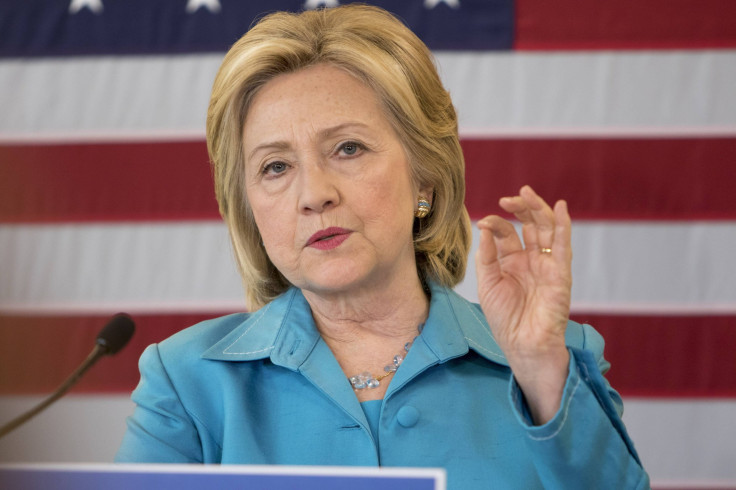Clinton Says She Didn't Work On Trans-Pacific Partnership, Despite Apparent Past Approval

Hillary Clinton seemingly further distanced herself from the controversial Trans-Pacific Partnership on Thursday following a meeting with the executive council of the AFL-CIO federation of labor organizations. The Democratic presidential hopeful told reporters she did not work on the trade deal while serving as secretary of state for President Barack Obama, according to Bloomberg.
Clinton made comments in the past that seemingly pushed for the Asia trade agreement involving the United States and 11 other countries, including Canada, Australia and Japan. But since becoming a candidate, the Democratic front-runner has carefully sidestepped the issue, neither endorsing nor opposing the deal. The deal's negotiators are working to iron out the deal that would have to go before Congress for approval.
Many on the AFL-CIO executive council strongly opposed the proposed Trans-Pacific Partnership. While Obama says the deal would create jobs, many other Democrats say it would hurt American workers.
“I did not work on TPP,” Clinton said, according to Bloomberg. "That was the responsibility of the United States Trade Representative."
Clinton said that during her time as secretary of state, she "advocated for a multinational agreement that would quote 'be the gold standard,' " according to Bloomberg. She provided a careful response when a reporter tried to question if that meant she endorsed Trans-Pacific Partnership during her time as secretary of state. “No, no, no," she said. "I never had any direct responsibility for the negotiations at all."
But in the past, Clinton seemingly backed the trade deal. CNN compiled a list enumerating 45 instances when Clinton appeared to push for the bill, the latest of which came on Jan. 31, 2013. Earlier in January 2013 she discussed the opportunities the deal would provide with Japanese Foreign Minister Fumio Kishida. "We also discussed the Trans-Pacific Partnership and we shared perspectives on Japan's possible participation, because we think this holds out great economic opportunities to all participating nations," Clinton said, according to CNN.
National Security Advisor Susan Rice also said in June that pushing the Trans-Pacific Partnership was a key part of Clinton accomplishing a new diplomatic relationship in Asia, according to a Bloomberg report.
Clinton has repeatedly said she is waiting to see the exact details before taking a stance on the deal. "There are three tests that I want to see met: Does this protect American workers, does it raise wages and increase economic opportunity, and is it in our national security interests,” she told reporters Thursday, according to Bloomberg.
© Copyright IBTimes 2024. All rights reserved.






















